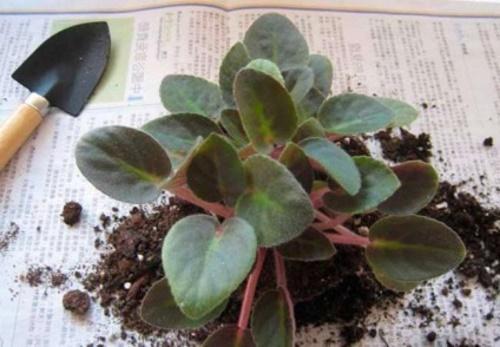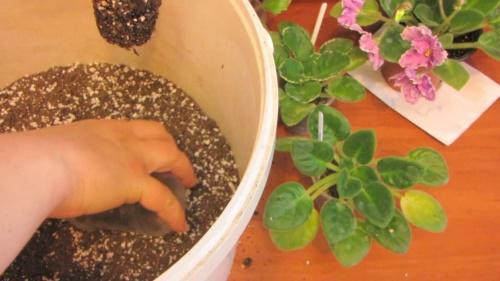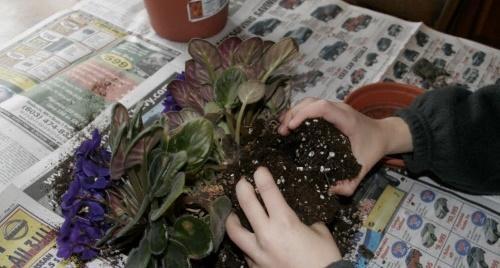How to plant a violet: the secrets of a successful transplant of an overgrown outlet
 Indoor violets are among those plants that prefer tightness. In small pots, they both grow better and bloom more actively, tying buds earlier. However, no matter how good the flowers are, there comes a time when the pot becomes small. In addition to the fact that the violet builds up a thick leafy cap, it also forms babies. Subsidiary plants simply do not fit in the old pot and take food away from the mother bush. To make all the sockets comfortable, they should be disconnected in separate containers. Knowing how to plant a violet will make it easy.
Indoor violets are among those plants that prefer tightness. In small pots, they both grow better and bloom more actively, tying buds earlier. However, no matter how good the flowers are, there comes a time when the pot becomes small. In addition to the fact that the violet builds up a thick leafy cap, it also forms babies. Subsidiary plants simply do not fit in the old pot and take food away from the mother bush. To make all the sockets comfortable, they should be disconnected in separate containers. Knowing how to plant a violet will make it easy.
What do you need?

- small pots for young violets 8 cm high and 8 to 15 cm in diameter (depending on the size of the plant);
- if necessary, a more spacious flowerpot for the mother's outlet (if it has become very large);
- knife;
- light and nutritious soil;
- ash;
- drainage.
Soil for violets can be purchased in the store or made at home by mixing soil from the garden and coconut substrate in 1: 2 proportions. Expanded clay or pieces of foam will serve as a drainage layer.
How to plant a violet?
The day before planting, the violet must be watered. Do not do this immediately before the procedure - wet earth will stick to your hands and hairy leaves. In a dry and non-spilled substrate, it is easy to damage the root system of plants.
The next day, you can start dividing and transplanting. For this:
- Remove the entire violet family from the old flowerpot along with a lump of earth, gently squeezing the walls of the pot. Can be gently nudged with a stick through the drainage holes in the bottom.

- Pick up remnants of old drainage from intertwined roots.
- Separate young violets with your hands so that each rosette has its own roots. If necessary, cut them off with a knife, and sprinkle the cuts with ash.

- Lay drainage in each pot, add substrate and plant plants.
Leaves that broke off in the process do not need to be thrown away. If you root them, you get new copies of flowers.
As for the mother socket, it can simply be transplanted into fresh soil. If the old violet has lost a lot of lower leaves and is bare, it is better to rejuvenate it by “cutting off its head” and rooting it.